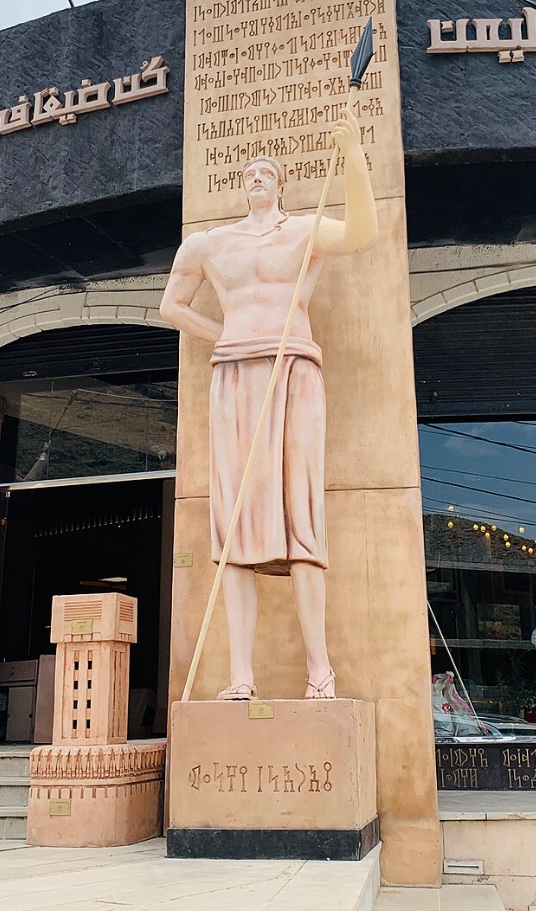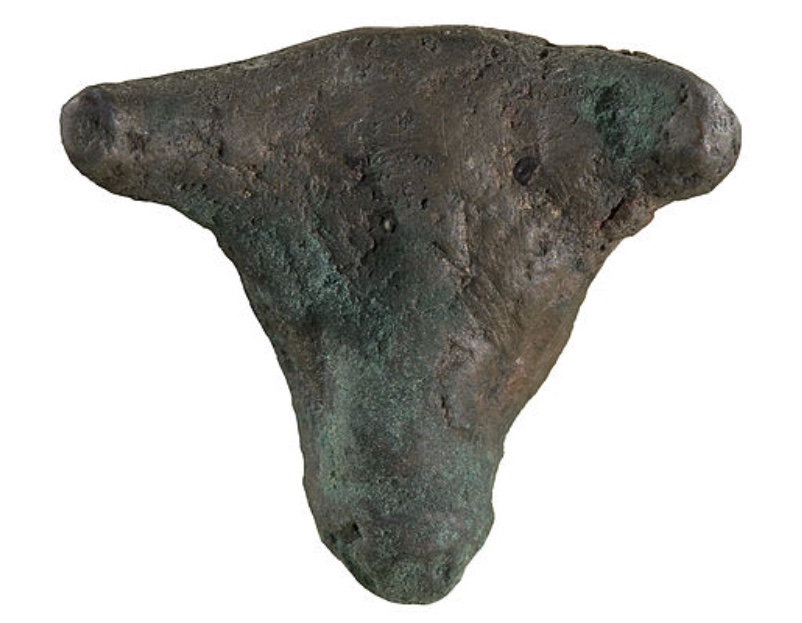Ancient Arab Gods and Legendary Heroes

By: Fedal Hanoun / Arab America Contributing Writer
The rich cultural legacy of the Arab world is reflected in the diverse array of stories, beliefs, and characters found in Arab myths and folklore. These stories, which span millennia, combine aspects of pre-Islamic folklore, old polytheistic customs, and timeless oral traditions that have been handed down through the ages. This article explores tales of ancient gods, legendary heroes, and the cultural legacies they leave behind as it dives into the fascinating realm of Arab mythology.
The Ancient Arabian Pantheon
A large portion of the Arabian Peninsula was polytheistic prior to the arrival of Islam in the seventh century CE, with various tribes worshiping different deities. These gods frequently represented the natural world, highlighting the difficulties of the desert and the necessities of life.
Al-Lat, a goddess connected to fertility, wealth, and the ground, was one of the most venerated gods. She was accompanied by Manat, the goddess of fate and destiny, and Al-Uzza, the goddess of might and war. Known as the daughters of Allah, these three goddesses were revered in holy locations and were essential to pre-Islamic ceremonies.
Hubal, who was considered a rain god and frequently portrayed with a golden hand, was another well-known figure. Long before the Kaaba in Mecca was considered the holiest place in Islam, Hubal’s idol was there. In order to find answers to their questions, tribes used arrow-related ceremonies and looked to Hubal for guidance and divination.
Even though the devotion of these gods has long ago diminished, remnants of their importance can still be seen in Arab mythology and cultural memory.
Djinn: The Unseen Entities
A discussion of Arab mythology would not be complete without bringing up the subject of djinn (or jinn). Mentioned in both pre-Islamic and Islamic traditions, these supernatural beings occupy an intriguing gap between the worlds of the gods and the mortals. Djinn are made of smokeless fire and, like humans, have free will; they are neither intrinsically good nor evil.
Djinn were frequently portrayed in pre-Islamic mythology as guardians of natural areas, particularly mountains, caverns, and oasis. They might, however, also be cunning or evil creatures that prey on tourists that enter their areas without permission. Arab folklore is replete with stories about djinn, some of which describe how they granted wishes, protected valuables, or fell in love with people.
In contemporary Arab literature and storytelling, the djinn tradition endures, frequently serving as metaphors for latent desires, anxieties, or the unsolved secrets of nature.
Epic Tales and Legendary Heroes
Stories of famous heroes who personified the virtues of courage, loyalty, and wisdom are also abundant in Arab mythology. Moral lessons regarding justice and dignity were frequently imparted by these tales.
Antarah ibn Shaddad, a warrior-poet from pre-Islamic times who was born to an Ethiopian slave mother and an aristocratic Arab father, is one such figure. Despite encountering prejudice because of his mixed ancestry, Antarah became well-known for his bravery in combat and his beautiful poems. The “Sirat Antarah,” a well-known folk epic that describes his valiant actions and his passionate love for his cousin Abla, and the “Mu’allaqat,” a compilation of pre-Islamic Arabic odes, both honored his achievements.
Stories about Magic and the Otherworldly
Stories of magic, sorcery, and the paranormal abound throughout Arab folklore. The search for supernatural items with power is one recurrent motif. Arab folklore, for example, is the source of the story of Solomon’s Seal, a magical ring that is supposed to govern djinn and give its wearer great wisdom and power. This tale demonstrates how the boundaries between myth and theology are hazy in Arab storytelling by fusing religious stories with folklore.
Keeping Things Safe Through Oral Tradition
Oral tradition has been the primary means of preserving Arab mythology and folklore. These stories were passed down from one generation to the next thanks in large part to the efforts of poets, storytellers, and bards. In many Arab civilizations, Hakawati, the lively art of oral storytelling, is still a significant cultural tradition. In marketplaces, coffee shops, or family settings, storytellers would congregate and captivate listeners with dramatic renditions of epic tales.
Islam’s introduction profoundly altered the cultural and spiritual landscape of the Arab continent. Islamic doctrines adopted many pre-Islamic stories and reinterpreted them from a monotheistic perspective. Some traditions declined as a result of this process, but others were preserved, albeit in different forms.

A Durable Legacy
Artists, authors, and filmmakers are still influenced by Arab mythology and folklore today. These stories continue to inspire ingenuity and interest, from contemporary TV shows that delve into the mysteries of djinn to novels that reinvent ancient legends. They act as a link between the present and the past, introducing spectators to the rich history of their forebears.
It is more crucial than ever to preserve Arab myths and folklore in a world that is becoming more and more influenced by globalization. In addition to honoring the inventiveness and tenacity of Arab civilizations, these tales serve as a reminder of the common qualities that bind all people together: bravery, love, and the timeless value of storytelling.
Check out Arab America’s blog here!








